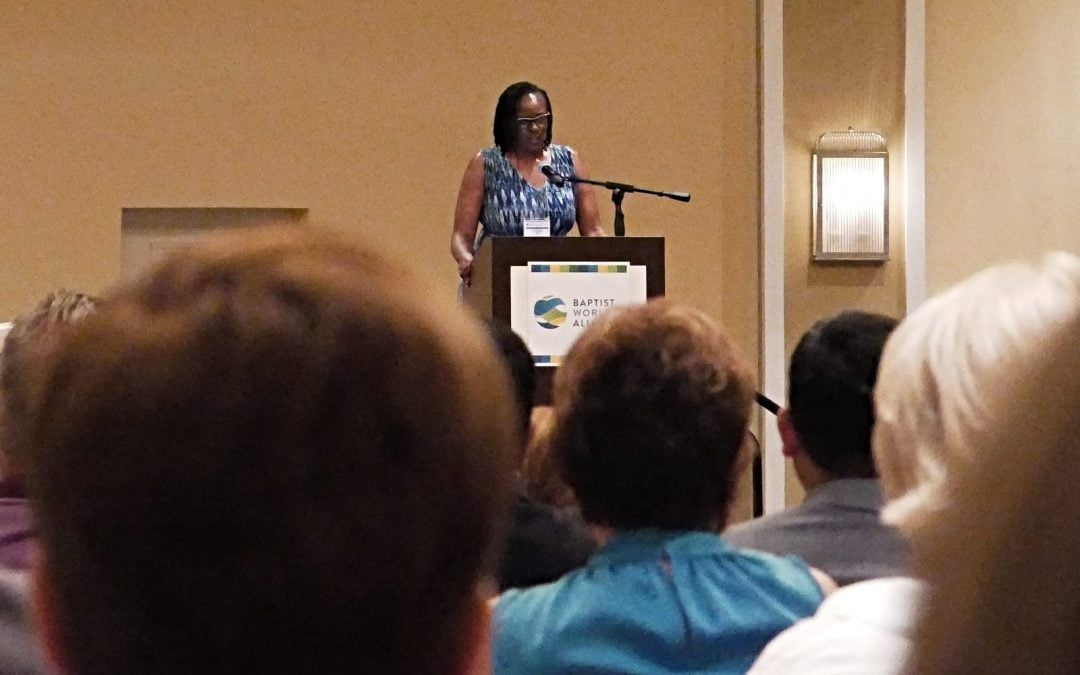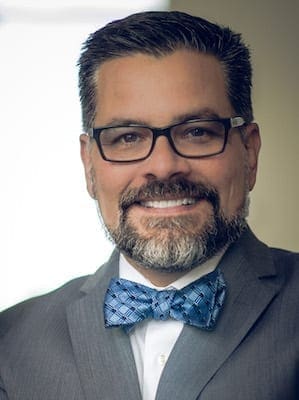The Baptist World Alliance (BWA) met in Nassau, the Bahamas, this week. EthicsDaily attended and participated in this important and diverse meeting.
Media Producer Cliff Vaughn and I interviewed Baptists from around the world as they addressed a myriad of significant topics.
We attended meetings concentrating on the global work of Baptists and the issues they are facing.
The BWA encompasses six regional bodies: All African Baptist Fellowship, Asia Pacific Baptist Federation, Caribbean Baptist Fellowship, European Baptist Federation, North American Baptist Fellowship and Union of Baptists in Latin America.
Representing approximately 50 million Baptists around the world, the BWA is a diverse body that respects cultural diversity, freedom of conscience and local church autonomy.
Listening to this large and diverse group was exciting and inspiring. Several significant issues were presented – each addressed with respect, received in humility and regarded with a willingness to learn from each other.
Three crucial themes presented themselves throughout the meetings we attended: (1) missions and evangelism, (2) women in ministry and (3) the need to develop a theoretical and pragmatic hermeneutic for the future.
“Missions and Evangelism” was the official theme for this year’s gathering. An emphasis on a holistic approach to missions and evangelism emerged, as participants recognized the vital connection between meeting both physical and spiritual needs.
In numerous countries, the Baptist witness is growing, particularly in African, Asian and Latin American countries. In North America and Europe, the Baptist witness is on the decline in terms of the numbers of affiliated members.
While increases and decreases were noted, another issue emerged that I found intriguing as some participants recognized and discussed a component of missions and evangelism very personal to me.
The conversation concerns the missional and evangelistic philosophy and methodology of combining colonial conquest with the Great Commission.
This concept can be traced back as far as Roman conquest under Constantine, but it was most visible through the expansion of European colonialism.
Over time, the idea of missions and evangelism merged with the concept of Anglo-colonialism.
The Great Commission charge of making disciples evolved into a conquest-conversion methodology, which emphasized Anglo-conformity of cultures over following Jesus with cultural nuances.
In other words, the Great Commission was co-opted to conquer and control non-Anglo cultures.
The inevitable question for the future of missions and evangelism will center around the understanding of what it means to be a disciple of Jesus.
Can a person maintain their cultural nuances (even practicing a religion other than Christianity) and be a disciple of Jesus?
Or, must a person always reject cultural influences and deny all religions other than Christianity to be a disciple of Jesus? These will be interesting questions to explore.
The second theme we overheard was the importance of women in ministry around the world.
While there are certainly variances in cultural practices regarding women in ministry, the emerging reality is that God continues to call women to positions of leadership around the world.
Through denominational leadership, seminary scholarships, pastoral ministry and missional entrepreneurship, women are leading the church into the future.
Doreen Wynter, an ordained minister from Jamaica, delivered a stirring and inspiring sermon during the Celebration of Preaching forum.
Drawing from the Great Commission, Wynter reminder her listeners that Jesus challenged the disciples to think beyond their imagination.
The disciples had to ask themselves, “Where is the end of the world?” she noted. As God continues to move within the church, divine imagination is using the gifts and talents of women to lead the church into the future.
The third intriguing concept was the need for Baptists to develop a new hermeneutic to read, interpret and apply the Bible to their faith and practice.
While the historical-critical method has served Baptists well, the emerging hermeneutic will combine the best aspects of the historical-critical method with tradition, reason and experience.
It may have been naïve for Baptists to believe we could ever read, interpret and apply the teachings of the Bible in a vacuum. Gender, socioeconomics, culture, experiences and other factors influence the hermeneutical process.
Also, as Central Seminary President Molly Marshall pointed out, “Our hermeneutical trajectory should always take us to Jesus.”
A hermeneutic that avoids Jesus is not a Christian hermeneutic, but an interpretation subject to personal manipulation for personal outcomes.
In other words, the hermeneutic of the future must walk the dusty roads with Jesus and travel through Golgotha toward the empty tomb.
It was an absolute pleasure being with my Baptists colleagues by the sea.
Next year, the Baptist World Alliance’s Celebration 2020 will be held in Rio de Janeiro. Baptists from around the world will descend on Brazil to celebrate the movement of God.
General Secretary Elijah Brown invites all Baptists to Rio with the hope that God will move in a mighty way through this big, diverse body of Baptists.


